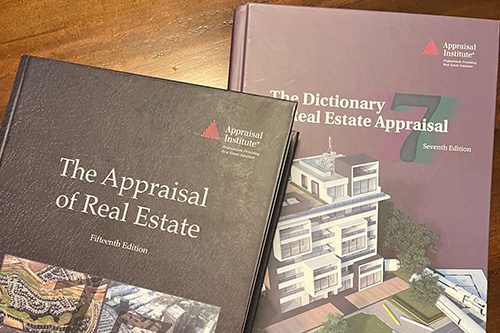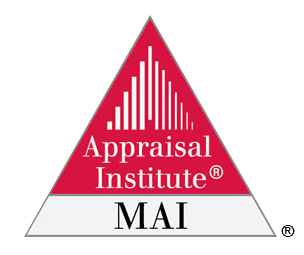If this is your first time ordering an appraisal here are some appraisal terms you will want to know before we talk:
FORM AN OPINION OF VALUE

Appraisers do not estimate value. Only under the rarest of circumstances would we arrive at a value conclusion that is a fact. Appraisers analyze the behavior of market participants and follow often complicated procedures to arrive at an opinion of value for your property.
HIGHEST AND BEST USE
This is a crucial part of the appraisal where we take market evidence and determine the timing and course of action that is “physically possible, legally permissible, financially feasible, and maximally productive”.
EFFECTIVE DATE OF THE APPRAISAL

Appraisals can basically have up to three effective dates:
- Retrospective — for estate planning this typically involves data of death of the owner of the estate. It can also refer to date of divorce or other significant date for example the day before a structure was damaged by fire or earthquake.
- Current — This can have a variety of uses for any entity that desires to know the present value of a property.
- Prospective — This date is a date in the future that typically (but not always) relates to lengthy construction projects. In this case, for example, we would take market evidence and form an opinion of value for a large multi-tenant retail center that would take multiple years to construct and to lease up.
Types Of Value
There are many types of value (market value, investment value, going concern, insurable) are some examples. We will discuss and determine which is appropriate for each specific assignment.
Property Condition
Appraisers can appraise a particular property in its “As-Is” condition. Improved properties where the construction is not complete I can provide a value “As-If Complete”, or “As-If Vacant”. There are some others but those are the most common.
Client
The person/entity that signs the engagement letter is who I work for. That person pays me and receives the finished product. I am governed by very strict confidentiality requirements. I cannot share the assignment results with anyone but the client without written permission. Once the client receives the finished product, they can do whatever they want with any portion or all portions of the report.
Scope Of Work
I will report to you the scope of work necessary to provide a credible result. This can be quite extensive but it is an important part of the report.
Approaches to value
There are three approaches to value that we consider: Cost, Income, and Sales Comparison. It may be possible that not all three approaches are relevant to provide a credible assignment result for every property type. I will discuss which are appropriate with you.
Type Of Report
There are two types of reports you can receive; one is called a restricted use report and the other is simply an appraisal report. They both require the same amount of research and calculations. The difference is in the amount of detail presented in the report. The restricted use report has much less detail and is generally intended for a single intended user. The appraisal report has sufficient detail to where the significant calculations are presented.
There are too many other concepts to review in this format. As we discuss the assignment, I will guide the discussion in such a fashion to where you have a clear understanding of: what effort I will take to achieve a credible result, how much it will cost you, and how long it will take to complete the assignment.


